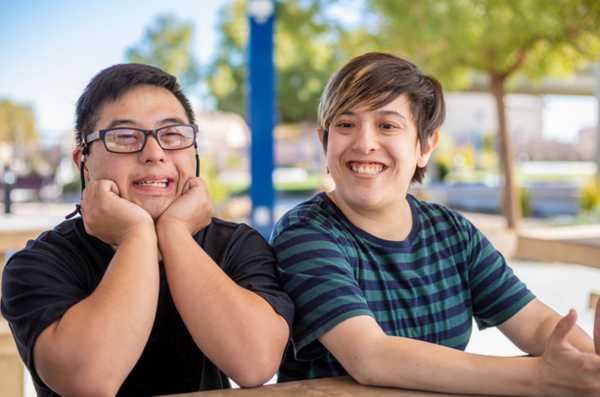Cooperation partnerships in youth games for improving affectivity in youngsters with intellectual disabilities

Since October 2022 the GIaFF4ID consortium has initiated the development of a Guidance Toolkit for youth workers and caregivers on teaching Sexual Education to Young Persons with Disabilities. Applying a well formed methodology, the Project Partners produced 6 National reports that collected all findings and drew conclusions, and on successful practices to foster self-advocacy for YPWID. An EU report is meant to compare national results and draft final conclusions on subjects.
Turkey
There is no legal framework for sexual education of YPWID in Turkey. Sexual education is based on a framework consisting of privacy, personal hygiene and protection from abuse. Studies carried out in this context have been left to the initiative of educational institutions. In addition, the subject of sexual education is still a taboo, faced with both YPWID and their families' blocking, and it is perceived as a shameful subject. The lack of knowledge of YPWID on this subject and the fact that the experts do not have sufficient information and appropriate materials can be counted as important deficiencies. National policies on special education should be formulated to take into account the sexual education of YPWID, as well as family involvement and the competencies of youth workers and caregivers in this regard.
Italy
Sexual education in Italy faces hurdles due to taboos, lack of legislation, and a focus on limited topics. Conservative influences, especially from the Catholic Church, hinder progress. Efforts to modernize curricula and include broader themes like LGBTQ+ issues are underway. However, gaps persist, notably in addressing the needs of young people with intellectual disabilities, due to the absence of inclusive curricula, trained educators, suitable materials, and societal stigma. Bridging these gaps requires comprehensive reforms for accessible and inclusive sexual education.
Greece
In Greece, the key findings deriving from the desktop research, the feedback provided by identified stakeholders and the interviews implemented all confirm the lack of adequate sexual education for both young adults with mental disabilities and the people supporting their everyday life (family members, friends and scientists). A number of crucial key points need to be considered in terms of sexual education for mentally disabled in Greece. Key points that need to be taken under serious consideration in the Project's upcoming stages. Indicately, key points such as Laws and Policies, Special Education Programs, Parental Involvement, Support from NGOs and Organizations, etc.
Belgium
Sex education for young people with intellectual disabilities in Belgium is a complex and sensitive subject. People with learning disabilities often have difficulty understanding information about sexuality and relationships, which can leave them vulnerable to abuse and misunderstanding. The main challenges are the lack of training for health and education professionals, the lack of resources and adapted materials, and the prejudices and stereotypes surrounding the sexuality of people with learning disabilities.
Spain
In Spain, sex education programs are not mandatory in schools, and those aimed at people with intellectual disabilities are limited, which leads them to have to learn about sex on their own. This lack
of education also makes people more vulnerable to abuse, violence and discrimination. Parents need to have the necessary information to share with their children, and specialized sexual and reproductive health resources for people with disabilities are scarce. The Spanish Association "Plena Inclusión" emphasizes the need to educate and support the sexuality of people with intellectual or developmental disabilities. Most of them have difficulties to differentiate between a love relationship and a friendship.
Bulgaria
Comprehensive sexuality education is part of a good quality education. Thus, it should be provided for by law, be mandatory and mainstreamed across the education system as of the early school years. The curricula and teaching methods should be adapted to the different stages of development of children and take into account their evolving capacity. Curricula on sexuality education should also be regularly evaluated and revised, in order to ensure that they are accurate and meet existing needs. It is important to consult and involve young people themselves, first and foremost, to ensure that the content of education that is provided to them is relevant and adapted to their needs

